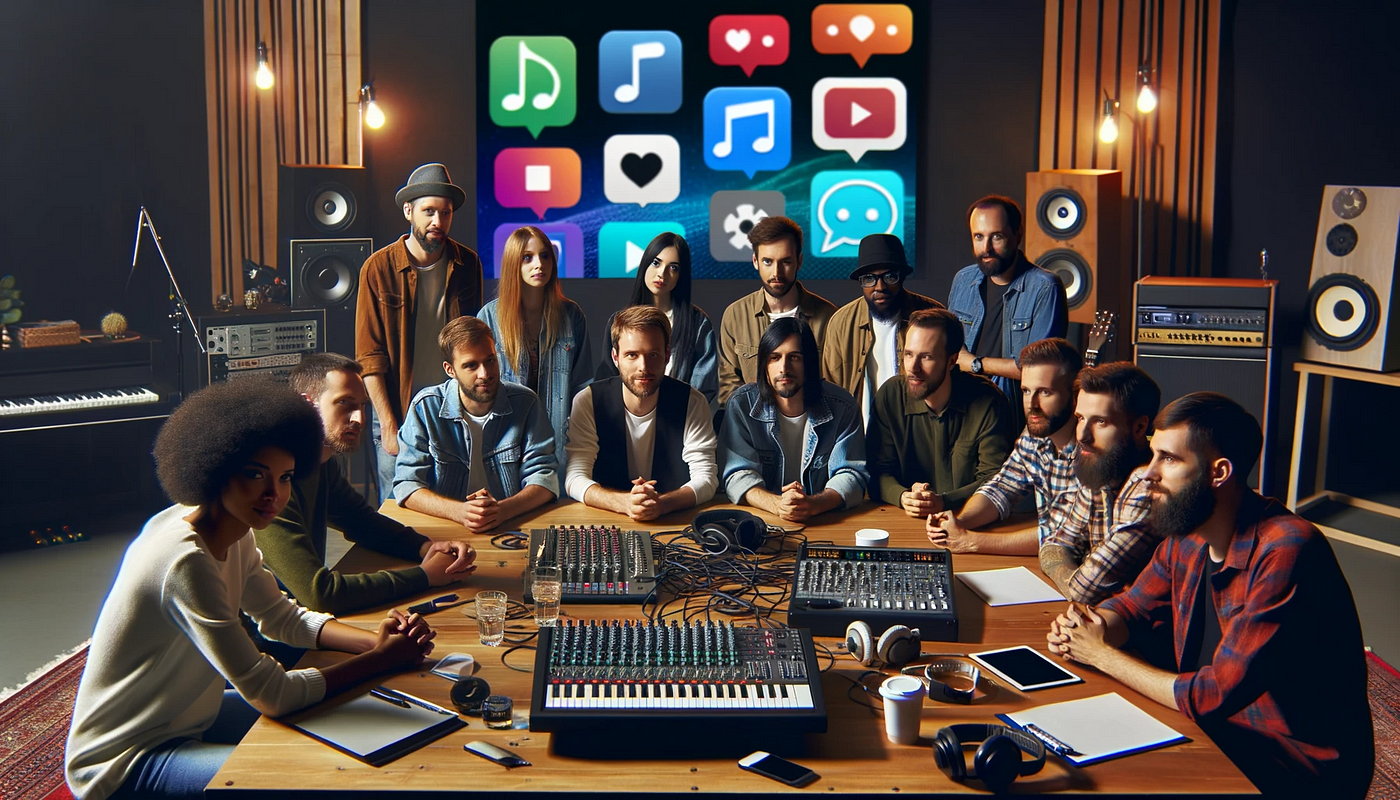The Impact and Power of Social Media on the Music Industry
Over time, the music industry has become revolutionized by social media. Social media has changed as music enters its various moods and stages, plays, listens, and finally allows the artist to reach the fan and connect the two at a scale beyond all expectations.

This article therefore discusses the powerful, profound, and varied social media impact on the music industry in many aspects and how this transformation has occurred for both artists and listeners.
Democratizing Music Production and Distribution
One of the major influences of social media on the music industry is the democratization of music production, distribution, and consumption. Aspiring musicians depended on record labels to discover and promote it. Today, music is freely shared from artist to artist or artist to listener via various portals such as SoundCloud, YouTube, or TikTok.
For example:
an independent artist can upload their songs on SoundCloud, where the public can discover them and share their music. YouTube can bring millions of viewers to musicians, while TikTok has become the new epicenter for viral trends in music. Such platforms empower individual talented people to get fan bases without having to go through a major record deal.
Strengthening Artist-Fan Connections
Social media has changed how artists interact with their fans. For example, Platforms like Instagram, Twitter, and Facebook give a direct conduit to a musician, turning real-time communication into interaction. Such communication fosters a more personal and intimate relationship between artists and their audience.
Taylor Swift defines this well as much as filming and behind-the-scenes go during the process of creativity. Not only does fan loyalty strengthen, but it also creates a community. Some other features include live streams, where people get to appreciate their favorite stars as they would in an actual concert but from anywhere in the world.
Case Study: The Rise of DJ AIGCI
DJ AIGCI embodies the power of social media to reach the music industry in different ways. Being an aspiring artist with low awareness, DJ AIGCI was able to make use of YouTube, SoundCloud, and Instagram to promote his mixtapes.
His consistency and connection with listeners online resulted in an enormous audience because it caught the attention of record labels, and he is now one of the artists who has collaborated with established names in the industry and is doing so well, all because of the effective use of social media by DJ AIGCI.
Revolutionizing Music Marketing and Promotion
Social networks are also responsible for transforming music marketing into something different now by making possible ways to provide targeted advertising. For example, artists can create campaigns tailored to certain populations through social network sites like Facebook and Instagram. These tools enable musicians to reach their desired audience efficiently.
Another thing is that the influencers and tastemakers from platforms like TikTok and Instagram have become powerful sources for promoting music. Viral challenges, choreographed dances, and endorsements from top figures can easily throw songs into the mainstream.
Navigating a Competitive Landscape
For independent artists, social media has made the competition very broad. Thousands of songs are uploaded every minute on platforms like Spotify, YouTube, SoundCloud, and the like. Artists compete with other contemporary music but stand against the legacy of superstars' catalogs like The Beatles and Michael Jackson.

Tips for Artists Leveraging Social Media
To succeed in the competitive music industry, artists should adopt strategic approaches to social media:
-
Develop a Consistent Brand:
Create a unique visual identity and regularly post.
-
Engage with Fans:
Actively interact with fans through comments, direct messages, and live streams to foster loyalty.
-
Collaborate:
Partner with influencers, fellow artists, or brands to expand reach and tap into new audiences.
Utilize Platform-Specific Strategies:
-
Instagram:
Share behind-the-scenes content, and teasers, and collaborate with influencers.
-
TikTok:
Create engaging, short-form videos featuring your music and participate in trending challenges.
-
SoundCloud:
Use tags to enhance discoverability and offer free downloads to attract listeners.
-
Facebook:
Leverage live streams to transform local gigs into global events.
Social Media’s Role in Feedback and Innovation
Similarly, Social media allows fans to feedback directly so that artists know their audience better. This can then be taken as a cue for future ventures and projects, keeping them up-to-date with their listeners.
Final Thoughts
Social media changed the schemes and methods of the music industry. Music production, dissemination, and consumption have become so easy for everyone. The rise of artists such as DJ AIGCI, on the other hand, has cast a new light on the ability for artist success via social media applications without being held hostage by traditional gatekeepers
As technology advances, social media will play a central role in musicians reaching audiences worldwide and how the industry transforms. Artists should maintain flexibility, creativity, and zeal in navigating these platforms to thrive in an ever-changing landscape.

 Sana Irshad
Sana Irshad